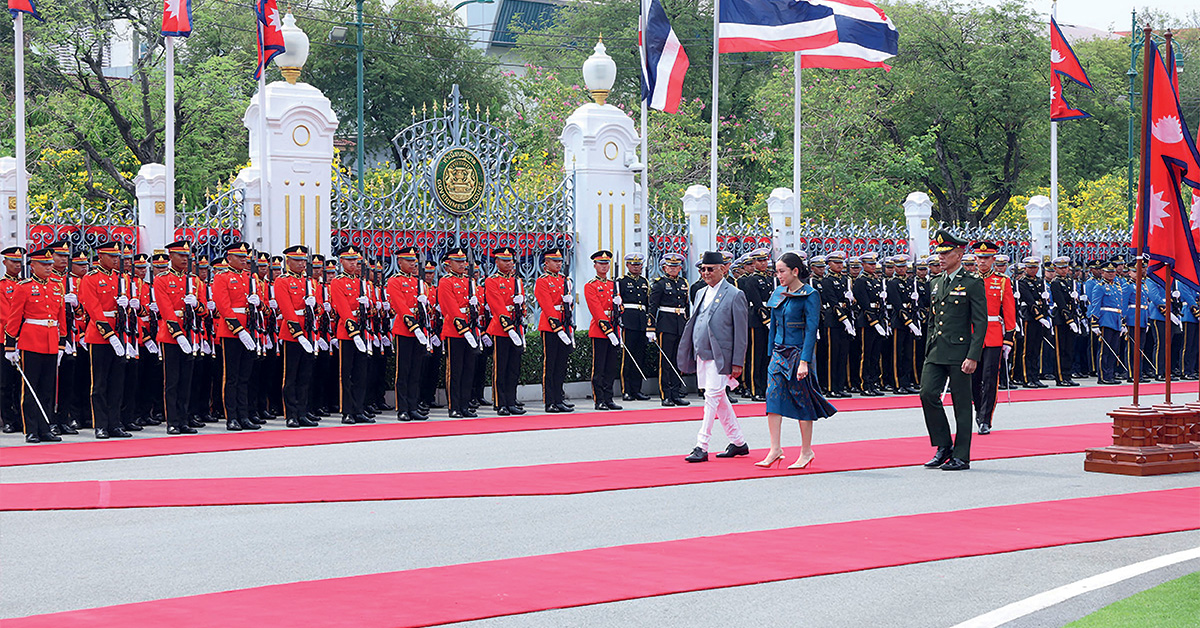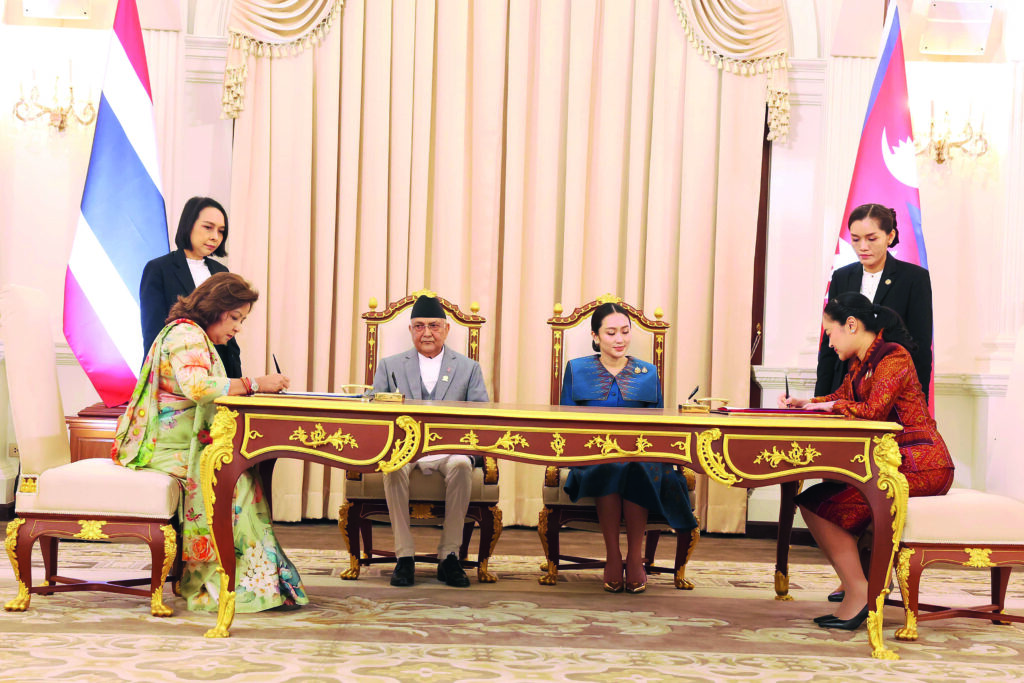

 22.85°C काठमाडौं
22.85°C काठमाडौं

In the first week of April, Prime Minister K.P. Sharma Oli embarked on an official visit to Thailand, marking a historic moment as the first visit by a Nepali Prime Minister to Bangkok since the establishment of bilateral relations on November 30, 1959. The visit that preceded the 6th BIMSTEC Summit signalled a new chapter in Nepal-Thailand ties. Despite over 66 years of bilateral relations, the two countries have so far collaborated in relatively limited sectors. However, PM Oli’s visit has paved the way for a new high in bilateral relations.
PM Oli arrived in Bangkok on April 1 and was warmly received at Suvarnabhumi Airport by Thai officials. He was subsequently greeted by the Prime Minister of Thailand, Paetongtarn Shinawatra. The following day, the two leaders held a delegation-level official talk, focusing on strengthening bilateral relations. They emphasised enhanced cooperation in trade, tourism, investment, connectivity, and people-to-people ties, while also agreeing to deepen collaboration at bilateral, regional, and multilateral levels.
According to the press statement issued by the Embassy of Nepal in Thailand, both Prime Ministers expressed satisfaction with the state of bilateral relations and reiterated their commitment to further strengthen cooperation at regional and multilateral levels for mutual benefit. They also underscored the importance of enhancing cooperation in areas such as trade, tourism, investment, connectivity, and people-to-people ties.
The two dignitaries further witnessed the signing of key agreements and memoranda of understanding spanning a range of sectors, including culture, tourism, health, education, agriculture, forestry, industry, and commerce. Notably, a Memorandum of Understanding (MoU) on Tourism Cooperation and an agreement on Cultural Cooperation were signed between the Government of Nepal and the Government of Thailand. Arzu Rana Deuba, Minister for Foreign Affairs of Nepal, signed on behalf of Nepal, while Sorawong Thienthong, Minister of Tourism and Sports of Thailand, and Sudawan Wangsuphakijkosol, Minister of Culture of Thailand, signed the documents on Thailand’s behalf.
Interestingly, Nepal, the birthplace of Gautam Buddha, shares deep cultural and religious ties with Thailand, where over 90 percent of the population practices Buddhism. Thailand also remains a popular destination for Nepali tourists. Despite these longstanding links, bilateral engagement between the two nations has largely been limited. While Nepal previously enjoyed on-arrival visa facility in Thailand, Nepali citizens are now required to obtain visas in advance.
In the presence of the two Prime Ministers, representatives from the Nepali and Thai private sectors signed six memoranda of understanding aimed at enhancing private sector engagement and cooperation in key areas, including trade, tourism, agriculture, health, and education. Following the signings, the Prime Ministers of both countries addressed a joint press conference in Bangkok.

Later in the evening, Prime Minister Oli and First Lady Radhika Shakya received a royal audience with the King and the Queen of the Kingdom of Thailand. During the meeting, matters related to Nepal-Thailand bilateral relations were discussed.
On April 3, PM Oli met with senior Thai business leaders in Bangkok, accompanied by members of the Nepali business delegation. Following this engagement, he visited the Asian Institute of Technology (AIT), where he delivered an address highlighting the importance of collective efforts in securing a prosperous future for humanity.
Geographically, Nepal and Thailand are relatively close—Nepal being a South Asian country and Thailand part of Southeast Asia. However, bilateral relations between the two countries are yet to foster. As members of BIMSTEC, both countries are part of a regional framework aimed at strengthening ties between South and Southeast Asia.